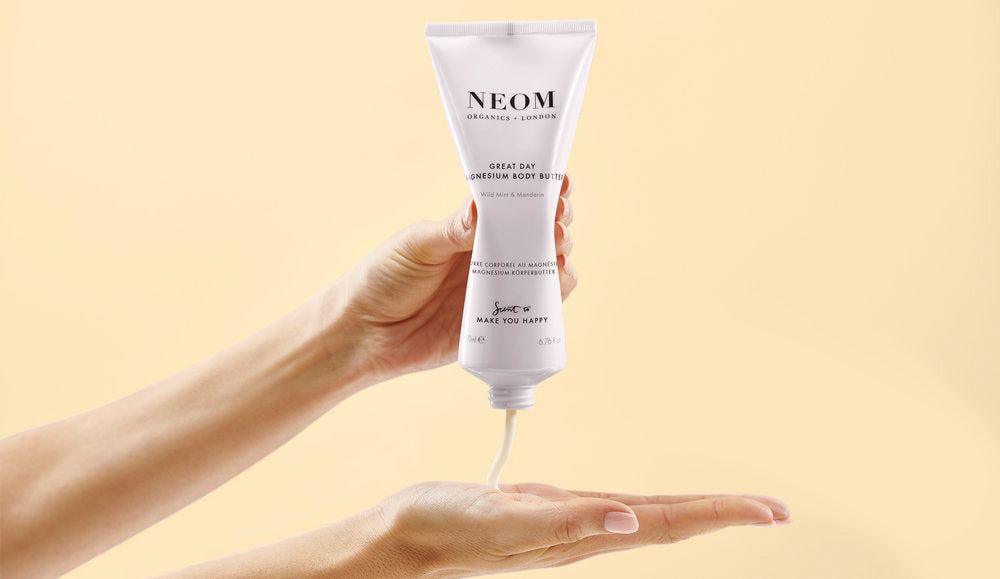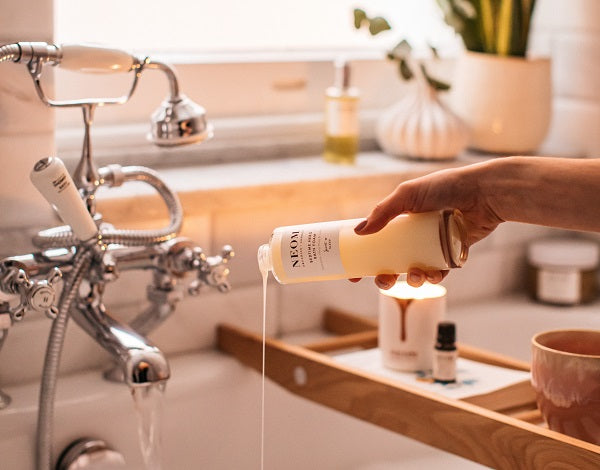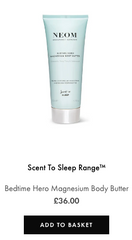There are many reasons why you might not be getting enough sleep, but, thanks to the rigours of modern life, stress is almost certainly one of the main culprits. Read on to discover how magnesium might just help you to not only de-stress, but achieve that elusive good night’s sleep too…
Why is sleep so important?
Getting enough good quality, regular sleep is one of the most important things we can do for our health and wellbeing. Although frequently undervalued, sleep is vital for the ongoing strength and productivity of every major system in the human body, including the immune, respiratory, endocrine and central nervous systems. It’s also responsible for maintaining healthy skin and re-energising our brain cells at the end of every day. Unsurprisingly, healthy sleep patterns also play a big part in regulating our mood. “The benefits of sleep wellness include… improved mood, stress reduction and lower prevalence of depression and anxiety, improved relationships and a higher frustration tolerance,” adds Courtney Bancroft, PsyD, who runs a private practice in NYC with a focus on sleep wellness and insomnia.
How does stress affect our sleep?
The payoff of busy modern lives means stress levels are on the increase, with a recent report commissioned by YouGov finding that 74% of adults had felt so stressed that they felt unable to cope. “Elevated stress levels cause higher rates of stress hormones like epinephrine/adrenaline and cortisol to be produced in the bloodstream,” says Bancroft. “These hormones are in charge of the ‘fight or flight’ response that occurs in the sympathetic branch of our central nervous system (CNS) and when they increase, our body and brain get signals that our safety is threatened. This response can keep us from sleeping and even make our dreams more vivid.”
As well as preventing us from relaxing into the optimum state for a deep and restorative slumber, if these hormones levels remain elevated or never get a chance to dip back down to normal range, it begins a vicious cycle of increased stress and impaired sleep, which in turn leads to exhaustion, chronic sleep disorders, subpar concentration and over time, weakened immunity and an increase in the risk of heart disease and diabetes.

How can magnesium help improve sleep and reduce stress?
While other factors including a poor diet, medication and stimulants such as alcohol and caffeine before bed can all contribute to bad sleep, there’s little doubt that stress is a leading cause. When we’re stressed, our magnesium levels naturally drop and it’s this, according to Bancroft, which is the problem when it comes to rectifying sleep issues. “Technically it's the deficiency of magnesium that can be a contributor to poor or troubled sleep,” say says. “Magnesium is a natural mineral that activates the parasympathetic nervous system (the other branch of the CNS)… magnesium helps to regulate the neurotransmitters and hormones in the body, and specifically binds to GABA receptors (gamma-aminobutyric acid) which aids in calming and quieting the nervous system.” Low levels of magnesium can also trigger a dearth of serotonin, the ‘feel-good’ chemical that is used by the body to synthesize melatonin, an incredibly important hormone that kickstarts the sleep cycle and helps us achieve a relaxed and restorative night’s sleep.
The best products to de-stress and send you to sleep
While you should always visit your GP about serious and prolonged stress or sleep issues, fostering healthy, regular habits is a good place to start tackling stress and begin improving the quality of your sleep. Whether it’s creating a wellbeing toolkit of essential products or boosting your magnesium intake via your diet and supplements, consistent oral and transdermal supplementation is advisable.
Bedtime Hero Magnesium Body Butter
Keep this nourishing body cream by your bedside table to soothe and replenish dry skin after your evening bath. Containing 88g of magnesium per 5ml, this hardworking formula allows for effective absorption of magnesium through the skin. Blended with the Scent to Sleep fragrance comprising chamomile, ylang ylang and cedarwood, it also helps to calm and aid sleep.

Real Luxury Essential Oil Blend
Known to be effective in helping to reduce anxiety, improve mood and lower cortisol levels, essential oils are an important part of any wellbeing arsenal thanks to their ability to impact the limbic system and trigger a change in the way we feel, including promoting relaxation for sleep. “The more consistently you pair them, a "behavioural pairing" like in Classical-Conditioning, may be formed, creating a link between bedtime and that scent,” says Bancroft. “The body/brain simply gets used to being sleepy and smelling that scent at the same time each night so the scent may become a symbol for bedtime and sleepiness.” This calming blend contains lavender, jasmine and Brazilian rosewood; drop into a warm bath or surround yourself in scent through the Wellbeing Pod.

Great Day Magnesium Body Butter
Regular exercise is a proven way to reduce anxiety and stress, thanks to its ability to produce brain chemicals such as endorphins that act as natural painkillers and improve the ability to sleep. Supercharge your daily workout session with a post-shower application of mood-boosting magnesium and a blend of uplifting spearmint, peppermint and mandarin essential oils, which are known for their invigorating properties.

Perfect Night’s Sleep Bath Foam
Taking a moment out of your day to press pause and partake in some self-care rituals is an effective tool in helping to manage your stress. Taking a daily warm bath increases your core body temperature and helps get your circadian rhythm, which can be disrupted by stress, back on track. Bathing regularly is also thought to be linked to an increase in neurotransmitters such as serotonin, that promote happiness. Add some of this Bath Foam with pure essential oils under running water, submerge yourself and prepare for slumber.

Shop Our NEOM Favourites to Help You Prep For Sleep & De-Stress








